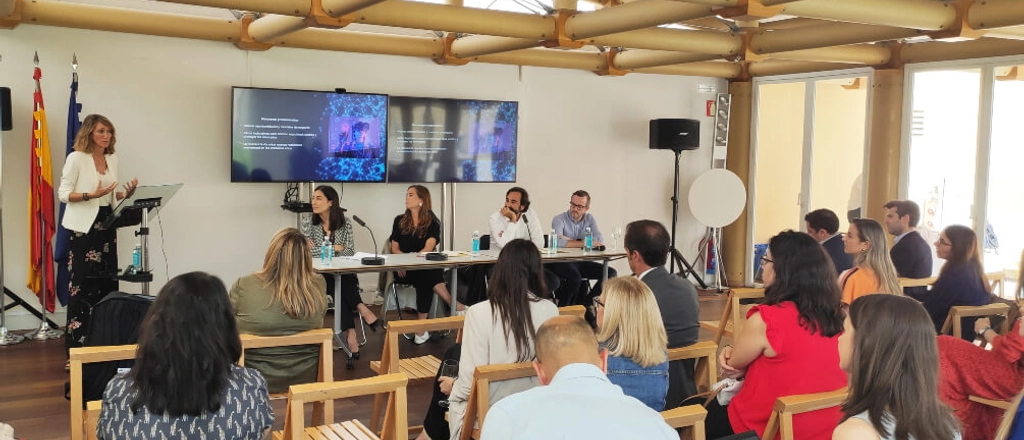Experts from companies such as Repsol, Huawei, La Liga, or Prosegur participated in the event organized by the IE – ECIJA Digital Law Observatory. The relevance of crypto assets and the metaverse will increase in the coming years. Therefore, the legal profession must adapt to these new technological phenomena. This will be achieved by developing training and expertise in these sectors, which will also require legislative adaptation to mitigate risks and situations of legal uncertainty during this transitional period. This is one of the main conclusions of the report on the metaverse and tokenization, resulting from a previous focus group with various professionals from the sector.
The IE – ECIJA Digital Law Observatory aims to delve into and research the various legal dimensions and implications arising from the digital economy to become a space for legal and academic research and dissemination of the new legal framework.
The event featured the participation of María Pedrosa, Head of Legaltech and Knowledge Management at Repsol; Lucía Conde, Head of Legal Spain Consumer Business Department at Huawei; Enrique Peloche, Data Protection Delegate at La Liga; Ignacio Gurpegui, Chief Intellectual Property Officer at Prosegur; Cristina Villasante, Partner at ECIJA; and Macarena Plaza, responsible for corporate development and legal innovation at IE Law School and academic director of the Observatory.
Among other topics, the debate revolved around how the metaverse will require adaptation of trademark and intellectual property regulations, and whether, in terms of legal regulation initiatives on crypto asset markets, the EU is at the forefront worldwide.
Thus, in response to a question posed by María Pedrosa, Head of Legaltech and Knowledge Management at Repsol, about whether European regulations are sufficient to regulate crypto assets, Enrique Peloche, Data Protection Delegate at La Liga, stated that their use must be regulated from an international perspective, not just European.
Regarding the metaverse or virtual or augmented reality spaces on the internet, beyond their renewed interest following the release of new devices, the speakers affirmed that they are still a relatively unknown and underutilized field. Regarding the entry barriers from a business perspective, Lucía Conde, Head of Legal Spain Consumer Business Department at Huawei, stated that for the use of virtual reality, minimal latency is essential. She also pointed out that interoperability is necessary for return on investment when entering the metaverse.
However, some types of metaverse uses were highlighted that could open up new types of products and services, but also pose new legal challenges. Thus, Ignacio Gurpegui, Chief Intellectual Property Officer at Prosegur, highlighted that in a service-oriented company like theirs, the use of this technology allows for the improvement of their service quality, for example, through immersive training of a security guard in the metaverse.

